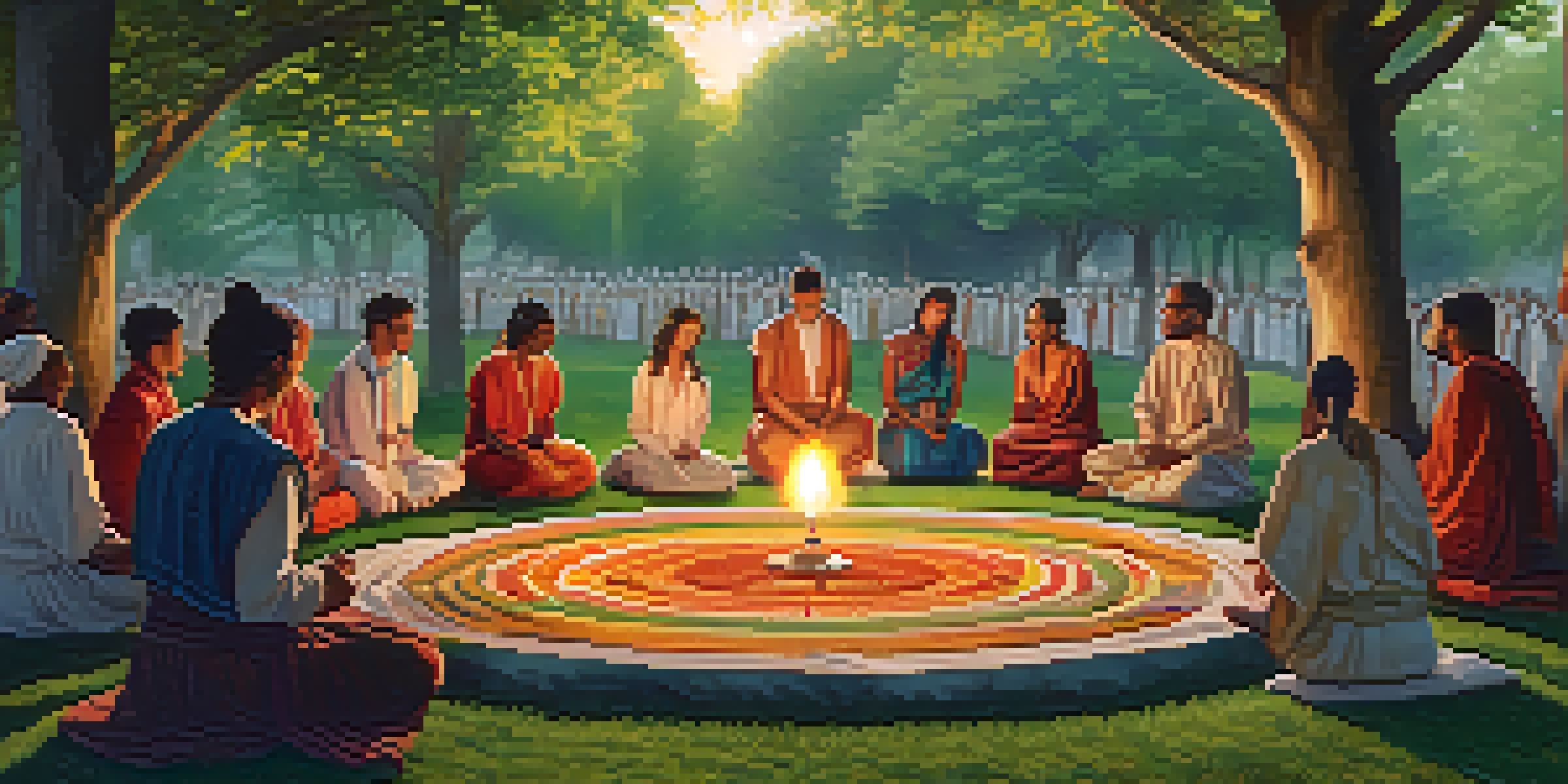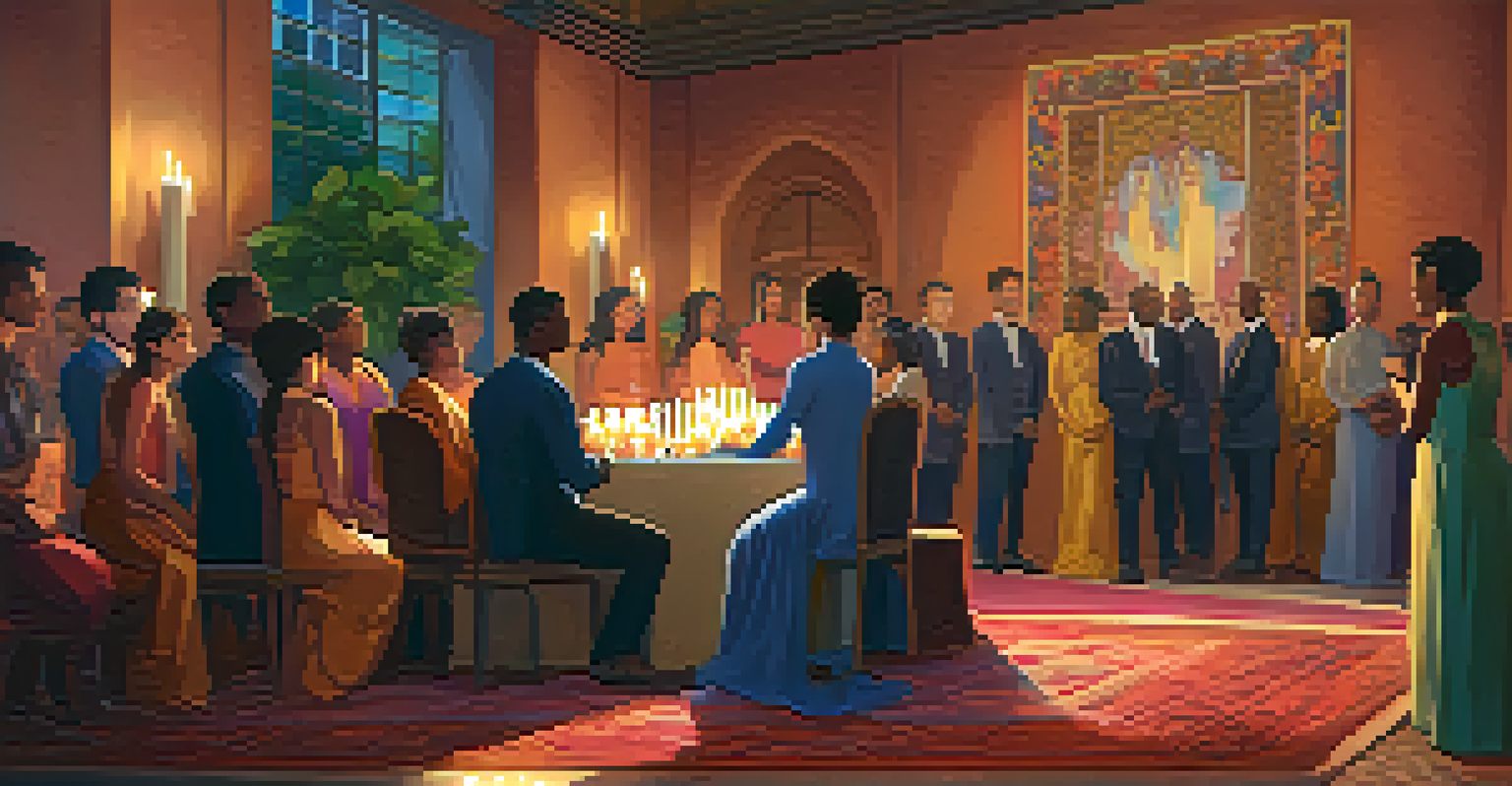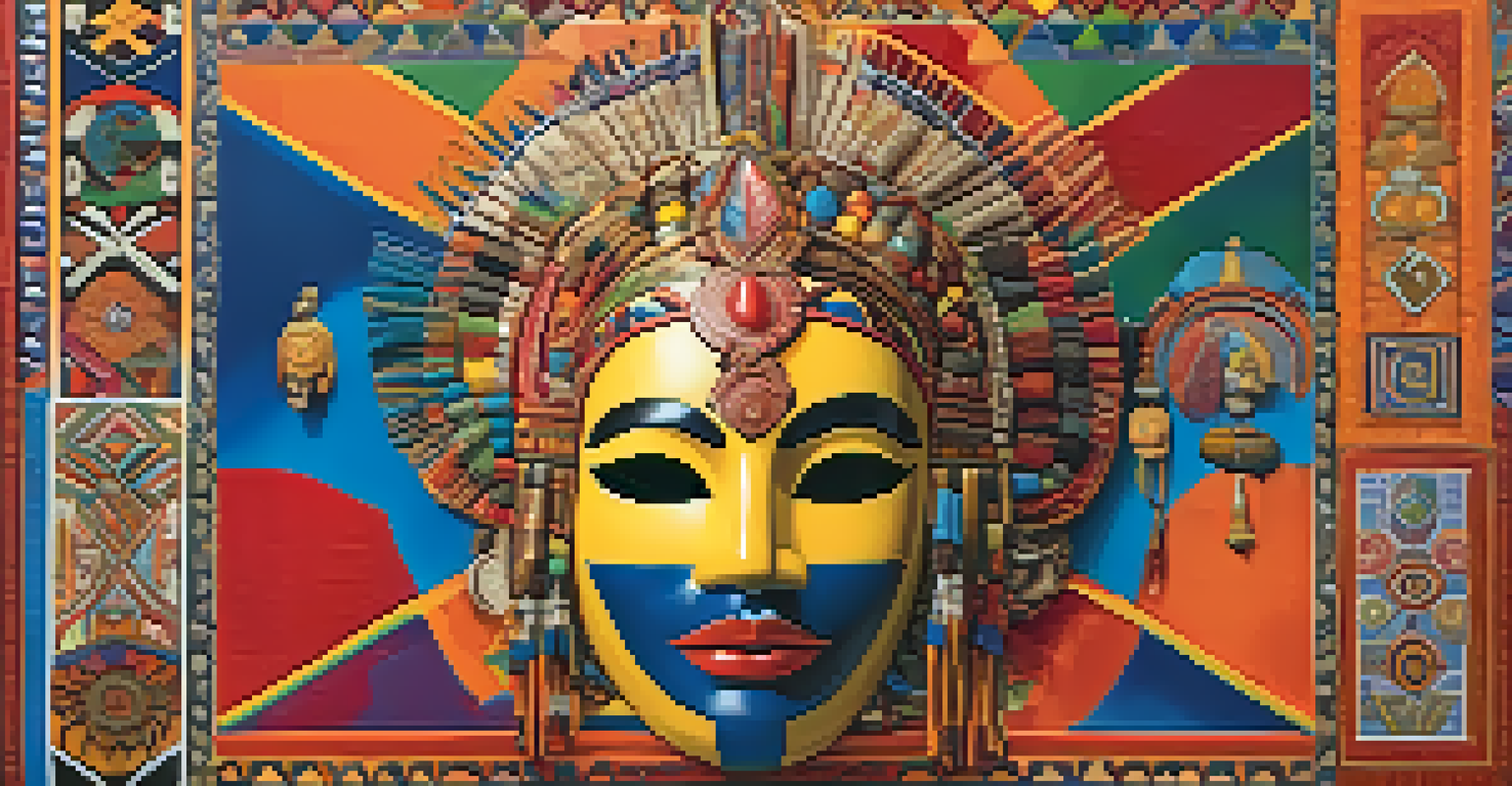Rituals and Gender: Celebrating Diversity in Spirituality

Understanding Rituals and Their Importance in Spirituality
Rituals have long been a cornerstone of spiritual practices across cultures. They serve as structured activities that foster connection, reflection, and community. Whether it’s lighting candles, chanting, or performing dances, rituals allow individuals to express their beliefs and values meaningfully.
Rituals are the formulas by which harmony is restored.
These practices not only provide a sense of order in the often chaotic world but also create spaces for individuals to come together. By participating in rituals, people can share their experiences and forge bonds that transcend personal differences. This communal aspect is especially vital in diverse societies, where various belief systems coexist.
Moreover, rituals can be deeply personal, offering a chance for individual expression. They allow practitioners to connect with their inner selves and explore their spirituality on their terms. As such, rituals play a multifaceted role in both individual and collective spiritual journeys.
The Intersection of Gender and Spiritual Practices
Gender plays a pivotal role in how individuals engage with and interpret rituals. Different cultural contexts often dictate distinct rituals for different genders, reflecting societal norms and expectations. Understanding these gender-specific rituals can reveal much about a culture's values and beliefs related to masculinity and femininity.

However, the binary view of gender is increasingly seen as limiting. Many spiritual practices are evolving to embrace a more inclusive perspective that recognizes non-binary, gender-fluid, and transgender identities. This shift not only broadens the scope of rituals but also validates the diverse experiences of all individuals in their spiritual journeys.
Rituals Foster Community and Belonging
Rituals create structured activities that enhance connection and reflection among individuals, promoting a sense of community.
By challenging traditional gender roles within spiritual contexts, we can create more inclusive rituals that honor everyone's identity. This inclusivity fosters a more profound sense of belonging, enriching the spiritual experience for all participants.
Celebrating Diversity Through Inclusive Rituals
Inclusive rituals celebrate the rich tapestry of human experience by acknowledging and honoring diverse identities. These rituals can take on many forms, from communal gatherings that welcome all gender identities to ceremonies specifically designed to empower marginalized groups. The key is to create spaces where everyone feels seen and valued.
In diversity, there is beauty and there is strength.
For example, some spiritual communities are beginning to implement gender-neutral language in their rituals, allowing participants to engage without feeling confined by traditional gender roles. This simple yet profound change encourages a sense of unity and shared spirituality, fostering a welcoming environment for everyone.
By celebrating diversity in rituals, we not only uplift individual identities but also strengthen communities. When everyone can see themselves represented and respected in spiritual practices, it cultivates deeper connections and enhances the overall spiritual experience.
Rituals as Tools for Gender Empowerment
Rituals can serve as powerful tools for gender empowerment, providing a platform for individuals to express their identities and assert their rights. Empowering rituals can celebrate milestones, transitions, or achievements, allowing participants to reclaim their narratives and challenge societal norms. This can be particularly impactful for marginalized groups seeking recognition and validation.
For instance, rituals that honor coming-of-age experiences or gender transitions can provide affirmation and support. These ceremonies create a sense of community and encourage collective healing, reinforcing the notion that every identity is worthy of celebration. Such empowering experiences can inspire individuals to embrace their authenticity confidently.
Gender Inclusivity in Spiritual Practices
Modern spiritual movements are evolving to embrace diverse gender identities, fostering more inclusive and empowering rituals.
Moreover, these rituals can spark conversations around gender equality and challenge systemic injustices. By highlighting diverse experiences and amplifying underrepresented voices, spiritual communities can foster a culture of inclusivity and advocacy, paving the way for broader societal change.
The Role of Modern Spiritual Movements
Modern spiritual movements are increasingly recognizing the importance of gender diversity in their practices. These movements often prioritize inclusivity and aim to create spaces free from discrimination and prejudice. By integrating diverse perspectives, they enrich their rituals and foster a sense of belonging for all participants.
Examples of this can be seen in contemporary paganism, which often embraces a broad spectrum of gender identities and roles. Many modern practitioners have developed rituals that honor both the masculine and feminine energies within everyone, promoting balance and harmony. This progressive approach reflects a growing understanding of gender as a fluid and multifaceted concept.
As these movements gain traction, they encourage traditional spiritual communities to reevaluate their practices. By fostering open dialogue and embracing change, these communities can evolve, ensuring that their rituals remain relevant and inclusive in a rapidly changing world.
Global Perspectives on Gender and Rituals
Exploring gender and rituals through a global lens reveals a fascinating array of practices and beliefs. Different cultures have unique ways of celebrating gender within their spiritual frameworks, offering valuable insights into the universality of these themes. For instance, some Indigenous cultures have long recognized Two-Spirit individuals, who embody both masculine and feminine qualities.
In contrast, certain religious traditions may enforce strict gender roles within their rituals, often leading to exclusion. Understanding these cultural nuances is essential for recognizing the diverse experiences of individuals across the globe. It highlights the need for ongoing dialogue and education around gender inclusivity in spiritual contexts.
Global Perspectives Enrich Rituals
Exploring gender and rituals globally reveals diverse practices that celebrate identity, highlighting the importance of inclusivity.
By embracing global perspectives, we can create a more vibrant and nuanced understanding of how rituals can celebrate gender diversity. This appreciation of different customs and practices can inspire new rituals that honor and uplift all identities, fostering a sense of global interconnectedness.
Moving Towards a More Inclusive Spiritual Future
As we reflect on the evolving landscape of rituals and gender, it becomes clear that a more inclusive spiritual future is within reach. By recognizing and celebrating the diverse identities present in spiritual practices, we can cultivate environments that honor everyone's journey. This shift requires a commitment to understanding and challenging existing norms and biases.
One way to promote inclusivity is through education and awareness. Spiritual communities can host workshops, discussions, and events that explore gender diversity and the importance of inclusive rituals. By fostering an atmosphere of learning and growth, these communities can inspire individuals to embrace their identities and engage more fully in their spiritual practices.

Ultimately, the journey towards inclusivity in rituals is an ongoing process. By working together, we can create a spiritual landscape that celebrates diversity, empowers individuals, and fosters connection among all people, regardless of gender identity.